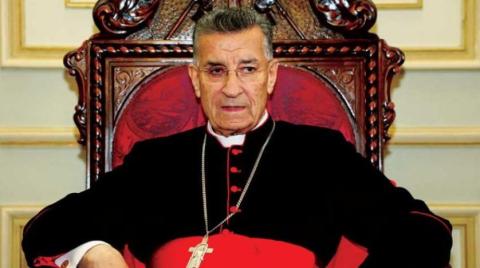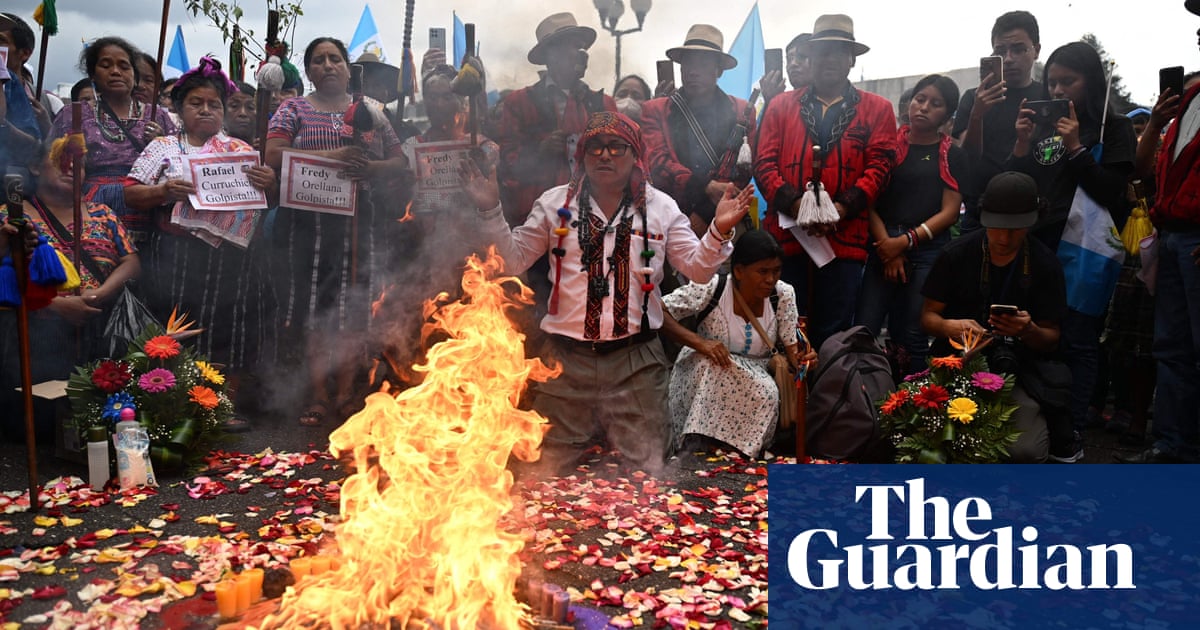
Hezbollah and allies cast blank ballot papers then halt proceedings by walking ou
President Michel Aoun’s term ends on Oct. 31, so the post is likely to be left vacant
BEIRUT: An attempt to elect a new president of Lebanon ended in farce on Thursday when Hezbollah MPs and their allies cast blank ballots, then walked out of the parliamentary session.
In a 45-minute session, the powerful Iran-backed Shiite group Hezbollah cast blank ballots, as did its allies the Shiite Amal Movement and the Free Patriotic Movement of outgoing President Michel Aoun, totalling 63 of the 122 lawmakers who attended.
Thirty-six voted for MP Michel Moawad, the son of a former president and staunch opponent of the Iran-backed Hezbollah movement.
Eleven MPs voted for Salim Edde, a businessman and son of the late Michel Edde who held ministerial positions from 1966 to 1998.
Ten MPs voted for the state of Lebanon and one voted for Mahsa Amini, the young Iranian woman who died after being arrested by Iran’s morality police for not wearing hijab “appropriately,” to express solidarity with protesters against the regime in Iran.
One MP voted for “the approach of Rashid Karami,” the former premier who was assassinated in a helicopter explosion during the civil war in 1987.
When Parliament Speaker Nabih Berri called for a recount, dozens of Hezbolla lawmakers and allies left, breaking the session’s required quorum.
Hezbollah’s sway over parliament has diminished since the group and its allies lost their majority in a May election which left an even more splintered legislature.
Berri did not announce the date of a new session. He said he would call a new session only once he saw consensus on a candidate.
“If there is no consensus, and if the next president does not receive 128 votes, we will not be able to save either parliament or Lebanon. When I sense consensus, I will call for a session,” he said. He said the quorum must be 86 MPs in order to hold any future election session.
“The country is in a deep and hard crisis...which requires agreement on a consensus president, not a president of confrontation,” said Hezbollah MP Ibrahim Moussawi.
But independent MP Firas Hamdan said the consensus sought by Berri was to blame for Lebanon’s troubles. “We are spinning in the same circle. This poses a danger to us, to the country and to the economy,” he said.
Fragile system
Incumbent President Michel Aoun’s six-year term ends on Oct. 31, so the post is likely to be left vacant as Lebanon plunges further into economic chaos.
Under Lebanon’s fragile sectarian power-sharing system, the office of president is reserved for a Maronite Christian.
The failure pointed out deep political divisions that threaten prolonged political paralysis and a leadership void at time where Lebanon is suffering an economic meltdown and has struggled to reach an agreement with the International Monetary Fund for a bailout.
Parliament’s deep divisions between Iran-backed Hezbollah and allies, traditional political adversaries, and a dozen reformist legislators continues to intensify. In recent months, no majority or consensus candidate in Parliament has emerged.
Lebanon has also been without a full-fledged government since May, and currently functions in a limited caretaker capacity under Prime Minister Najib Mikati.
How the MPs voted
The Democratic Gathering parliamentary bloc, headed by Taymour Jumblatt, voted for Michel Moawad as he “believes in the Taif Agreement” according to the bloc’s member Hadi Abu Al-Hosn.
Independent MPs voted for “Lebanon” and independent MP Karim Kabbara said that he voted for “the approach of Rashid Karami who was a statesman who believed in the law, institutions and coexistence.”
Anti-Hezbollah MP Moawad said that he did not expect a new president to be elected in the first session. He stressed that consensus “cannot be built with arms outside the (control of) state nor by imposing ideologies.”
Lebanese Forces Deputy Chief George Adwan said that “casting a blank vote shows the ruling political class is in disarray and the opposition did not have a sovereign candidate; Some opposition MPs also cast a blank vote.”
Senior Hezbollah legislator Mohammad Raad said the crisis-hit country’s parliamentary blocs are in the “early stages” of finding a president who would “bring stability to the country.”
“The blocs need to discuss and develop an understanding over a possible consensus candidate,” Raad told the press.
Independent lawmaker Halime Kaakour, meanwhile, blasted lawmakers for what she called a “negative calm with no consensus,” fearing a prolonged delay in electing a new president.
“The Constitution says it’s the majority of votes,” she told reporters. “I think it’s no longer a logical approach to try to reach a consensus in a country that continues to collapse.”
Most candidates who were tipped to be among the frontrunners did not receive any votes, most notably Sleiman Frangieh of the Marada Party, an ally of Hezbollah who calls Syrian President Bashar Assad a “friend and brother.”
Over the past three years, three-quarters of the tiny Mediterranean nation’s population slipped into poverty, as the country’s infrastructure and public institutions continue to crumble. The Lebanese pound has lost 90 percent of its value against the dollar, decimating the purchasing power of millions struggling to cope with rampant inflation rates.
Lebanon has been scrambling for over two years to reform its inefficient and wasteful economy, combat corruption, and restructure its demolished banking sector to reach an agreement with the International Monetary Fund for a bailout program. The IMF has recently criticized Lebanon for its slow progress.
Last week’s joint statement of Saudi Arabia, the US and France on the sidelines of the UN General Assembly in New York stressed that it was “critical to elect a president who can unite the Lebanese people.”
(With Reuters, AP and AFP)











